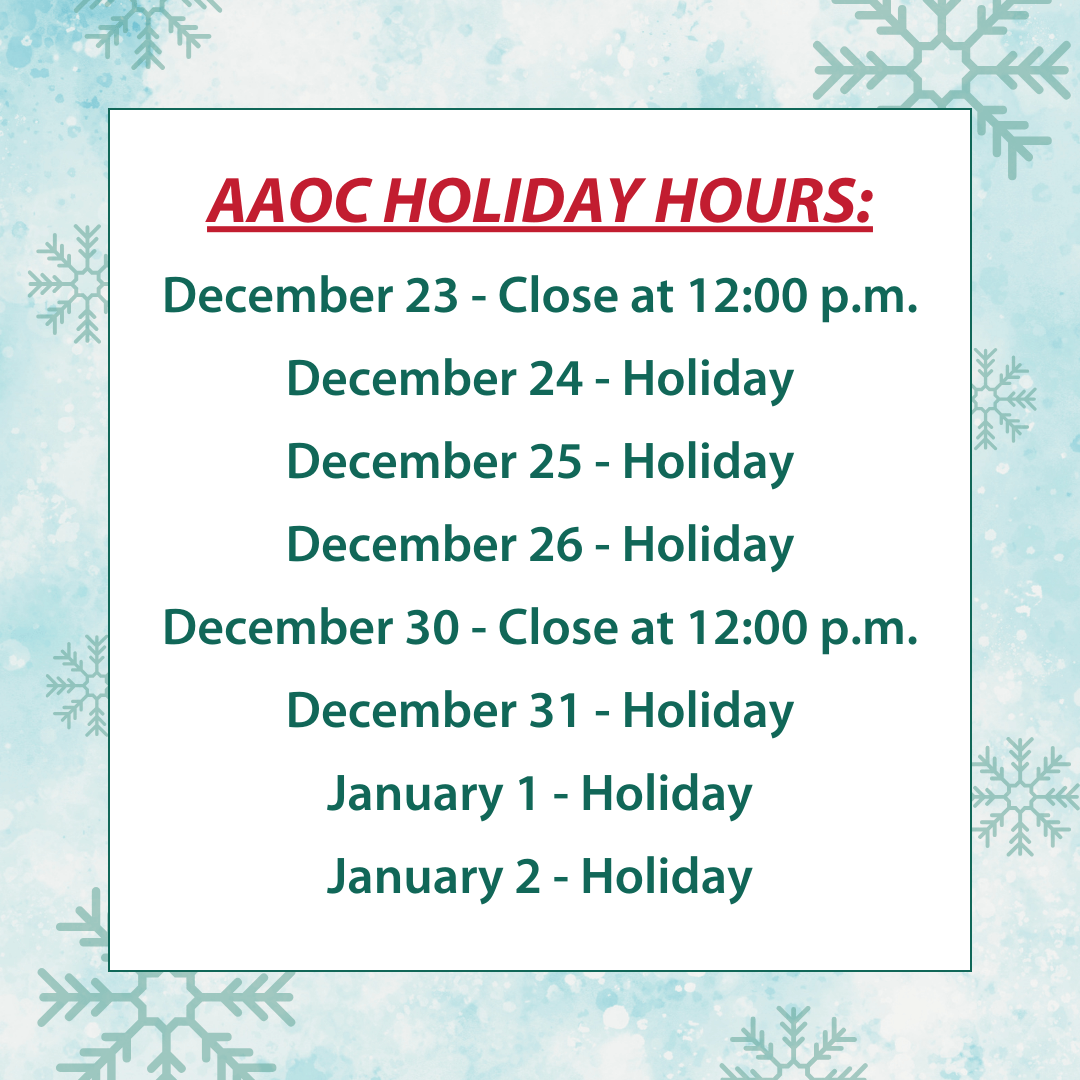Events
The AAOC presents tradeshows, member meetings, mixers and educational events throughout the year. Our members stay connected and informed!
Upcoming Events
Jan 7
to
/
Mar 18
Jan 8
Jan 20
Jan 21
Jan 22
Feb 6
to
/
Mar 6
Feb 11
Mar 19
Apr 29
May 27
Jun 24
Aug 13

